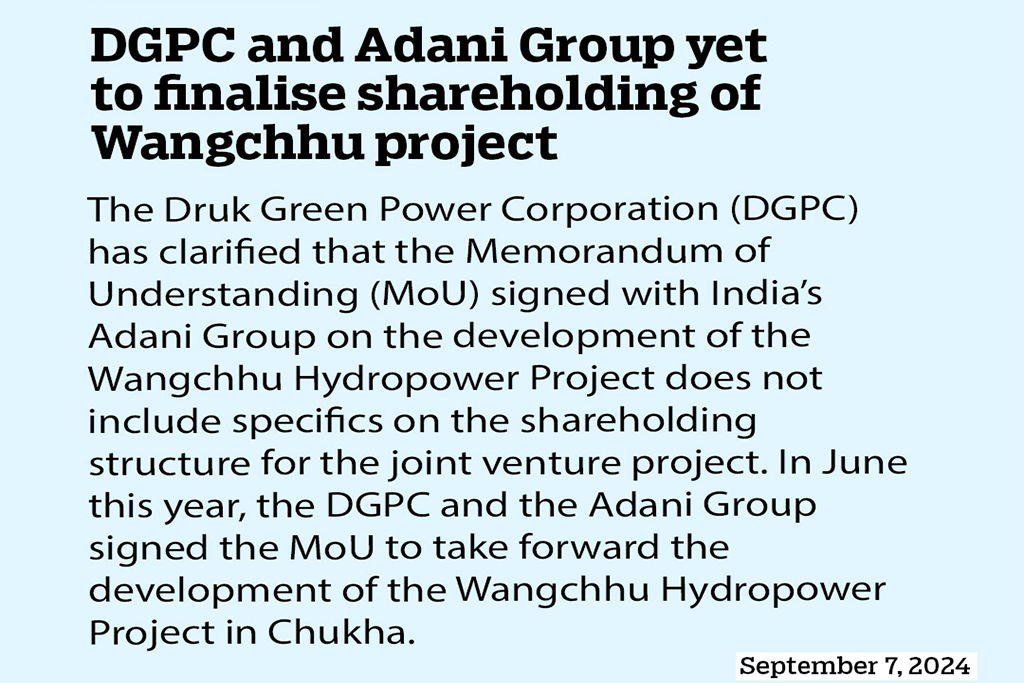In a significant move to bolster renewable energy, the Asian Development Bank (ADB) signed a USD 30 million loan agreement with the Royal Government to support the Distributed Solar for Public Infrastructure Project.
This initiative aims to install solar panels on the rooftops of public buildings, including government offices, hospitals, schools, markets, and parking structures, generating up to 35 megawatts of energy.
The project is set to commence in October and will span five years.
The loan agreement was signed yesterday in the presence of ADB President Masatsugu Asakawa, who is on a three-day official visit to Bhutan, focused on enhancing collaboration between ADB and the RGoB.
Energy Specialist with ADB Jongmi Son said that solar power was a key climate adaptation strategy in Bhutan. “Energy security has become a growing concern because of rising electricity demand and insufficient power supply, particularly during the winter season.”
Given the high solar radiation, solar energy can enhance resilience by reducing dependence on hydropower, she added. “Solar generation peaks in the dry winter months when river flows decrease, complementing hydropower and enhancing grid stability for year-round reliability.”
While Bhutan primarily relies on hydropower, the country has had to import electricity during winter and lean seasons. From December 2023 to May 2024, Bhutan imported electricity worth Nu 6.07 billion, a dramatic increase from Nu 1.75 billion during the same period the previous year.
Meanwhile, hydroelectricity exports fell from Nu 24.2 billion in 2021 to Nu 16.67 billion last year.
The government has set ambitious targets to generate 500 megawatts of solar energy by 2025 and 1,000 megawatts by 2030.
According to the Renewable Energy Management Master Plan 2016, Bhutan has the potential to produce 12 gigawatts of solar power and 760 megawatts of wind energy.
Jongmi Son said that distributed solar photovoltaic systems could be deployed quickly, offering a faster solution to meet growing energy demands, while hydropower projects typically took longer due to its complexity.
“The solar energy sector holds significant potential for job growth, offering employment opportunities across various skill levels, especially considering the labour-intensive nature of distributed solar,” she added.
The project also comes with a technical assistance grant of USD one million from ADB’s Technical Assistance Special Fund and Clean Energy Fund, which is under the Clean Energy Financing Partnership Facility.
“This will support the development of guidelines to expand rooftop solar investments, promote new solar technologies through a pilot project, enhance local workforce skills, particularly for young people in new business areas related to solar energy, and strengthen the institutional capacity of Druk Green Power Corporation Limited for solar energy development,” ADB’s news release states.



